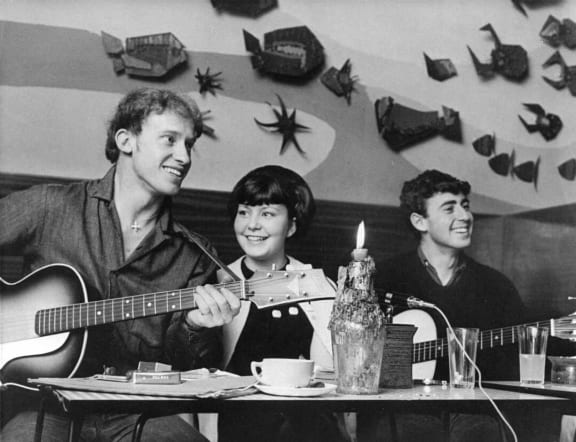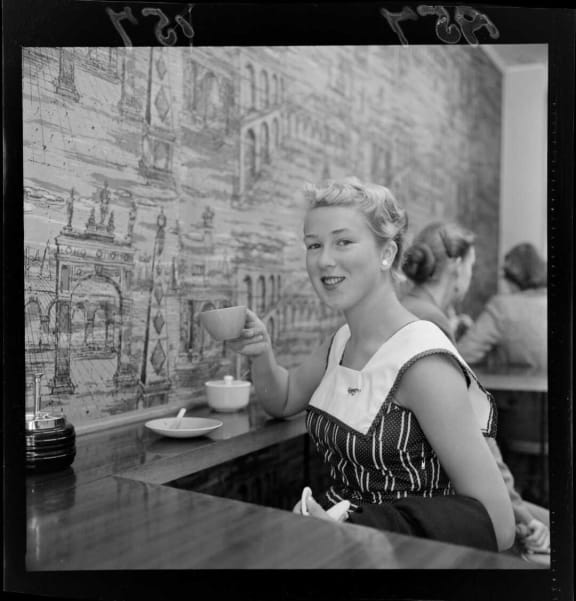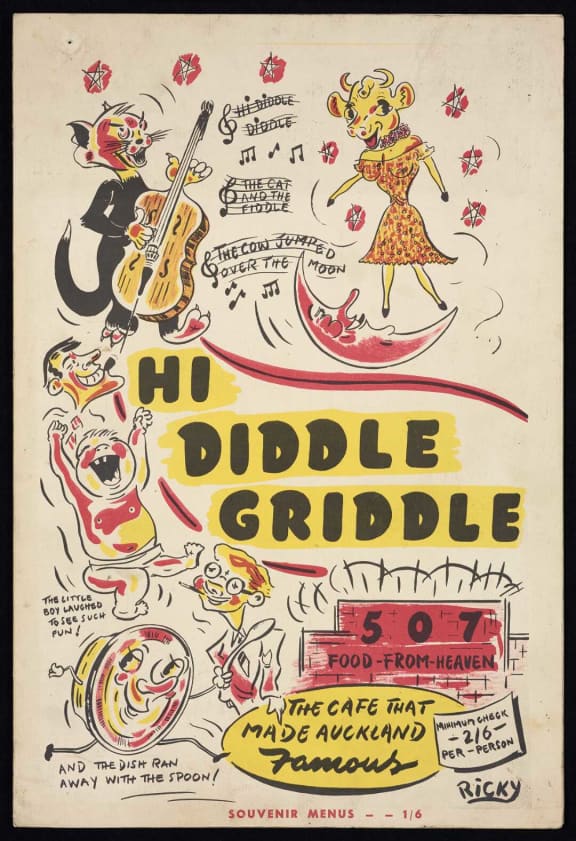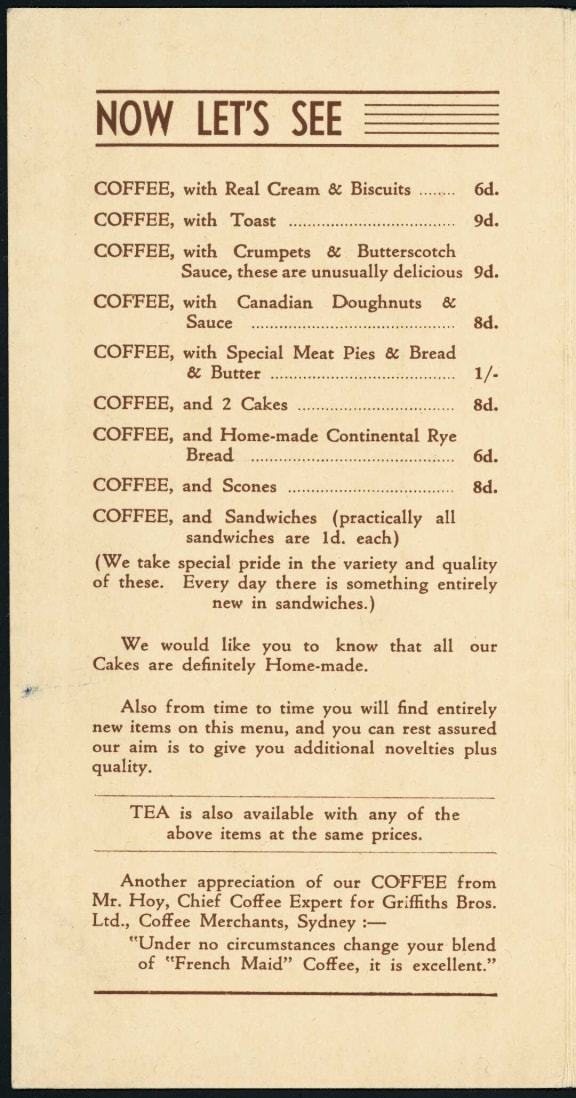
Photo: Ngā Taonga Sound & Vision
From Thursday we will be able to re-enter our favourite cafés as New Zealand moves to Covid-19 alert level 2.
To celebrate, Sarah Johnston from Ngā Taonga Sound & Vision shared recordings about the start of our national café culture, back in the days of the coffee lounge and the milk bar.
“Going back to the 1950s this was the era when we still had the 6 o’clock swill, most restaurants couldn’t serve alcohol and dining out was pretty limited.
“You had your fancy hotel dining rooms or something quick from the milk bar or the fish and chip shop,” she says.
A Spectrum interview from 1990s looked back at a pioneering cafe the Monde Marie, which was started by the colourful character Mary Seddon.
“Mary Seddon Returned from living in Europe in the 1950s and came back to this pretty grim buttoned-down hospitality scene in Wellington and she became involved in opening one of the first coffee bars in Roxborough Street at the foot of Mount Victoria called the Monde Marie,” Sarah told Jesse Mulligan.
Seddon told Spectrum that along with good coffee the Monde Marie offered Wellingtonians something quite new.
“We had good coffee and cakes which we’d made ourselves. It was a gathering point most nights.
“I’m the sort that won’t have hank-panky and I wasn’t going to have men picking up girls or anything, and it got the name that fathers would say to their daughters ‘well you can go to the Monde but you can’t go to this one and that one.
“And it really was comfortable, because you didn’t get the feeling if you talked to somebody that you were trying to pick them up.
“A lot of people met there, a lot of these people lived at home or with strict land ladies and this was one of the few places they could actually meet and talk and feel free.”
She encouraged a mix of patrons, from suits and taffeta dresses to jeans and sneakers, she told Spectrum.
“It was a real mix up and I wanted it that way and I would not allow one group to take over and you had to watch like anything because if you didn’t one lot would start getting in early and getting all the best seats and they would assume they were the great ones and it was a great mistake, I didn’t like it at all.”
Seddon couldn’t get a liquor license, there were only 10 licensed restaurants in the country in 1961, but folk music became quite a selling point of the Monde Marie – not that she had particularly fond memories of some of the performers.
“Somebody came in and they sang The Sloop John B and the next lot came in and they sang The Sloop John B and sounded extraordinarily similar to the first lot.
“It was only after a while I recognised that they had got the very first Kingston Trio record and that was the beginning of folk in New Zealand.
"They were all singing this sort of thing about poets starving in the gutter and all this, and I’d say to them 'why can’t you just sing some nice, easy tunes?' And they’d say ‘but Mary I feel it’
“Oh gosh these poor little sopranos, I described them as mutton-fed virgins from the Taranaki… and they’d come in and try and sing things like The House of the Rising Sun.
“A girl with a pretty voice singing a nice Irish tune would have been absolutely super and everyone would have loved it, but no they had to pretend to be prostitutes and die while they sang The House of the rising Sun.”
In the 1980s licensing laws loosened and it was something of a golden age for hospitality, Sarah says.
“We had the share market boom with lots of people with lots of disposable income. The yuppie tradition of the boozy long lunch and the power dinner in places like The Coachman and Orsini’s in Wellington, Antoine’s in Auckland were really the names everybody knew.
“But when the stock market crashed in ‘87 a lot of restaurants went down with it.”
An RNZ Insight programme in 1992 looking at the changes in the hospitality scene and the emergence of the ‘brasserie’
Restaurateur Tony Astle was not impressed.
“There’s not one real brasserie maybe Chin Chin to a certain extent, there’s not really one brasserie in this country. There’s no such thing as a brasserie in France, they are all restaurants calling themselves brasseries or coffee bars calling themselves brasseries, because brasserie seems to be the name New Zealanders have got hold of.”
Video: Watch George Stucki’s home movie of his Wellington café The Matterhorn in 1984
Listen to the Spectrum documentary about “The Days of the Monde Marie”









